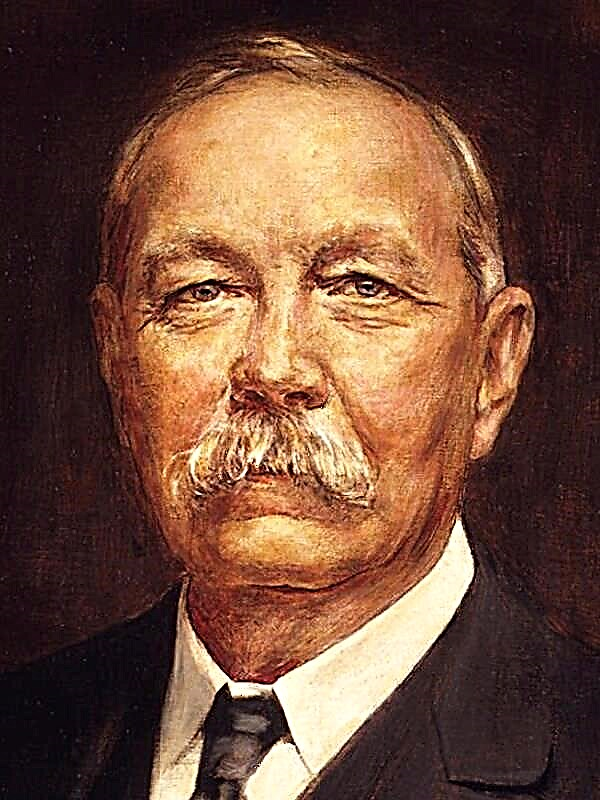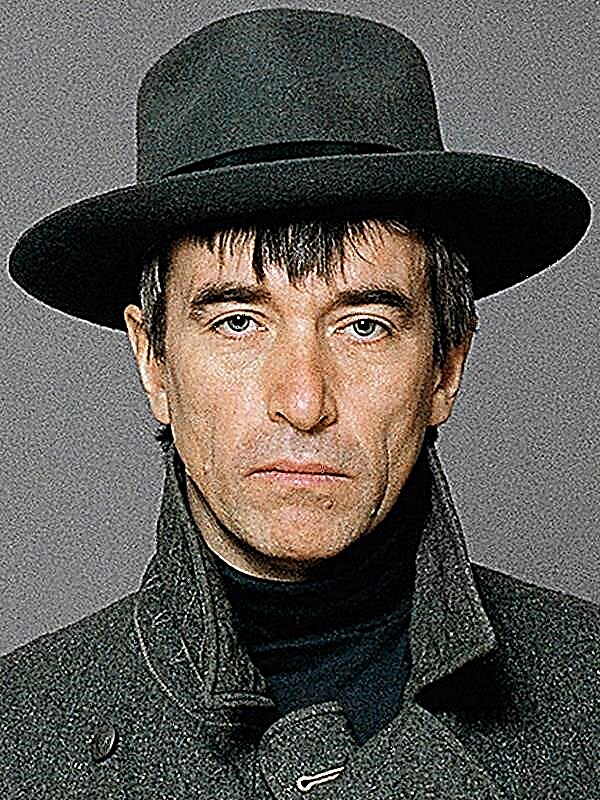The action takes place during the Great Patriotic War, in 1942, in the territory of occupied Belarus.
“Punishers” is a bloody chronicle of the destruction of seven peaceful villages by the battalion of Hitler's punisher Dirlewanger. The chapters bear the corresponding names: “Village One”, “Village Two”, “Between the Third and Fourth Village”
Punitive policemen are preparing to destroy the first village on the way to their main goal - the large and populous village of Borki. The date, time, place of event, surname are precisely indicated. As part of the "special team" - "Sturmbrigade" - German Oscar Dirlewanger united criminals, traitors, deserters of different nationalities and religions.
Policeman Tupiga is waiting for his partner Dobroskok to finish the massacre of the inhabitants of the first village before the arrival of the authorities. The whole population is driven behind the shed to a large pit, at the edge of which the execution is carried out. A policeman Dobroskok in one of the houses to be destroyed, recognizes among the owners his urban relative, who moved to the village on the eve of childbirth. In the soul of a woman, the hope of salvation lights up. Dobroskok, suppressing a feeling of compassion, shoots a woman who falls over backward into a pit - and ... falls asleep (According to the testimony of those who survived the execution by a miracle, people don’t hear how they shoot at the moment of the shot. They fall asleep.)
The chapter "Second Village" describes the destruction of the village of Kozulichi. The French punisher asks the policeman Tupigu to do an “unpleasant job” for him to make a shame of fat - to shoot the family, who has settled in a good solid hut. After all, Tupiga is “a master, a specialist, well, what is he worth?” Tupigi has her own style: first, he speaks with women, asks for a bite to eat - they will relax, and as the hostess bends to the oven, so ... "The body of the machine gun rushed - as if he was frightened ..."
The action returns to the first village, to the pit where the pregnant woman remained in a state of strange mortal sleep. Now, at 11 hours 51 minutes Berlin time, she opens her eyes. In front of her is a pre-war children's room on the Bobruisk outskirts; mother and father are going to visit, and she hides lips from them ashamedly painted with mother’s lipstick; the next vision is for some reason an attic, and they and Grisha are lying like husband and wife, and below is a cow mooing ... “The sour smell of love, shameful. Or is it because of the screen? No, from below, where is the cow. From the pit ... From which pit? What am I talking about? Where I am?"
The third settlement is not much different from the previous ones. Policemen Tupiga, Dobroskok and Orphan go through a rare pine, breathing fat sweetish cadaveric smoke. Tupiga tries to suppress thoughts of possible revenge. Suddenly, in the thick of a raspberry, policemen stumble upon a woman with children. The orphan shows an immediate readiness to put an end to them, but Tupiga, suddenly obeying some kind of unconscious impulse, sends her companions forward, and he gives the line from the machine gun past the target. The sudden return of the Orphan terrifies him. Tupiga imagines how the Germans or the bandits from the Melnichenko company — the Galicians, Bandera’s — would react to his act. And now the “independents” have stirred, - it turns out that some woman, having seen a smoke-fire, is running away from the field, home. A machine gun hits from behind a bush - a woman with a bag falls. Having reached the village, Tupiga meets Orphan and Dobroskok with full pockets. He enters a house not yet plundered. Among other things, goodness is one tiny boot.Holding it on his finger, Tupiga finds a baby sleeping in a cradle in the dark side. One eye is ajar and, it seems to Tupiga, is looking at him ... Tupiga hears the voices of marauding Bandera in the courtyard. He does not want to be noticed in the house. The child screams - and Tupiga grabs the gun ... Far and unfamiliar his voice sounds: “It was a pity, I regretted the kid! Burning alive. ”
The commander of the new "Russian" company Bely is plotting a way to get rid of his closest ally Surov, with whom he is associated with the courses of the red commanders, captivity, the Bobruisk camp and voluntary consent to serve in a punitive battalion. At first, Bely entertained himself with a pipe project — to leave someday for the partisans, and to present Surov as a witness of his “honest” intentions, and therefore specially protected him from obviously bloody tasks. However, the farther, the more clearly Bely understands that he will never be able to break with the punishers, especially after the incident with the partisan scout, in whose confidence he entered, but immediately betrayed him. And in order to dispel the harsh halo of integrity, orders him to personally pour gasoline and burn the barn, where the entire population of the village was driven.
In the center of the next chapter is the figure of a fierce punisher from the so-called “Ukrainian company” Ivan Melnichenko, who is completely trusted by the company commander German Paul, an ever-drunk pervert felon. Melnichenko recalls his stay in Vaterland, where Paul’s parents invited him - Melnichenko saved his life. He hates and despises everyone: stupid, limited Germans, partisans, and even his parents, who are stunned by the appearance of a punitive son in a poor Kiev hut and pray to God for his death. In the midst of another “operation”, help came to the Melnichonkovites - “Muscovites”. In a rage, Melnichenko hits the commander with his whip - his recent subordinate Bely - and receives a full clip of lead in response. Bely himself immediately dies at the hands of one of the Banderaites (from the documents it is known that Melnichenko was treated for a long time in hospitals, after the war he was convicted, fled, hid and died in Belarus). Borkovskaya operation continues. Carries it out according to the "method" Dirlewanger Sturmführer Slava Muravyov. Novice punishers are being built in pairs with the Nazis who were already in the business - it’s impossible to stay out of the way, not to be covered in blood. Muravyov himself also went this way: a former lieutenant of the Red Army, he was crushed by fascist tanks in the very first battle, then, with the remnants of his regiment, he tried to confront the inexorable German military machine, but was eventually captured. Completely depressed, he tries to justify himself to his mother, father, wife, himself, that he will be “his” among strangers. The Germans noticed the military bearing, the intelligence of the former teacher, and immediately gave a platoon. Muravyov consoles himself with thoughts that made him respect himself; his subordinates are not Melnichenko’s “independents”, he has discipline. Muravyov enters the house of Dirlewanger himself, meets the chef's concubine, Stasey, a fourteen-year-old Polish Jewess who painfully reminds him of a long-standing love - teacher Berta. Muravyov is no stranger to books, the German Zimmermann discusses with him Nietzsche’s theory and biblical parables.
Dirlewanger appreciates the taciturn Asian, but now he is going to make him a pawn in his game: he is plotting Muravyov’s wedding with Stasya to shut up the mouth of the evil-minded people who reported to him in Berlin about the allegedly missing gold gizmos that he had pocketed after the execution of fifty selected Jews in May . Dirlewanger needs to rehabilitate himself in front of Himmler and the Führer for his past connection with the conspirator Rem and unhappy addictions for girls under fourteen.On the way to Borki, Dirlewanger mentally composes a letter to Berlin, from which the leadership will recognize and appreciate its “innovative”, “revolutionary” way of total destruction of the rebellious Belarusian villages and at the same time the successfully applied practice of “re-educating” the scum of humanity like the bastard Paul, whom he pulled out from a concentration camp and took to a punitive platoon: the best sterilization is "rejuvenation with children's blood." Borki, according to Dirlewanger, is a demonstrative act of total intimidation. Women and children were driven into a barn, local policemen who naively counted on the mercy of the Germans - to school, their families - to the house opposite. Dirlewanger with his retinue enters the barn gate to “admire” the conscientiously prepared “material”. When the machine-gun fire subsides, the gates that have not sustained fire open themselves. The punishers who stand in the cordon cannot stand the nerves: Tupiga gives the queue from the machine gun to puffs of smoke, and many turn their stomachs. Then begins the reprisal with the policemen, who, in front of the families, are taken out one by one from the school and thrown into the fire. And each of the punishers thinks that this can happen to others, but not to him.
At 11 56 hours, the German Lange leads a machine gun barrel over the corpses of the terrible pit of the first village. For the last time, a woman sees her killers, and in terrible silence, an unborn six-month life screams silently from horror and loneliness.
At the end of the story - documentary evidence of the burning of the bodies of Hitler and Eva Braun, a listing of crimes against humanity in the modern era.


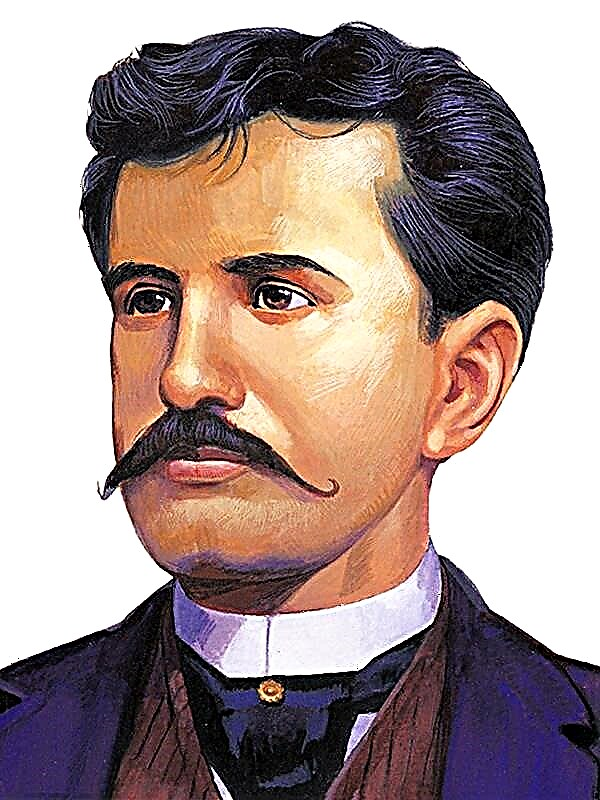
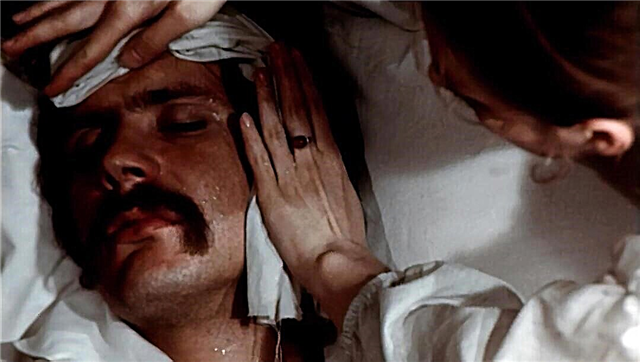

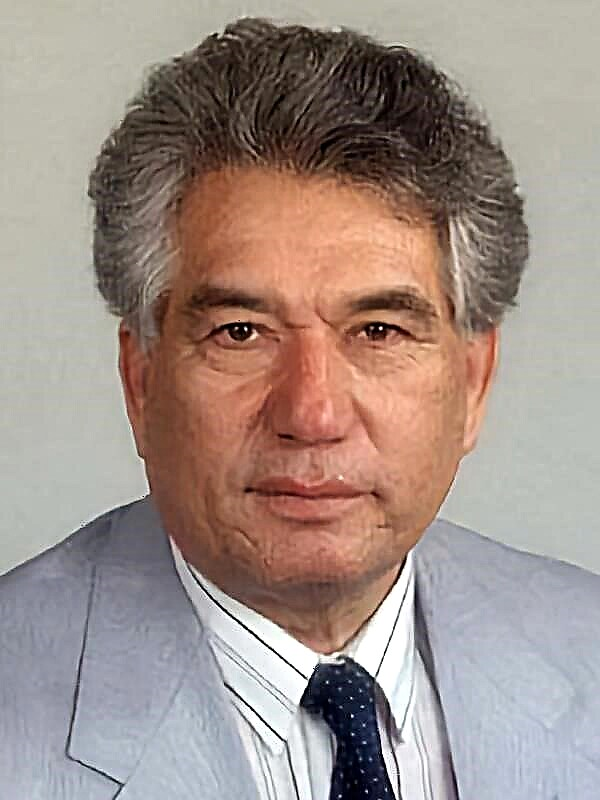
 Pot, do not cook!
Pot, do not cook!

